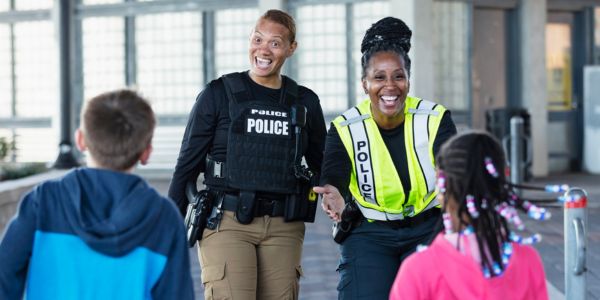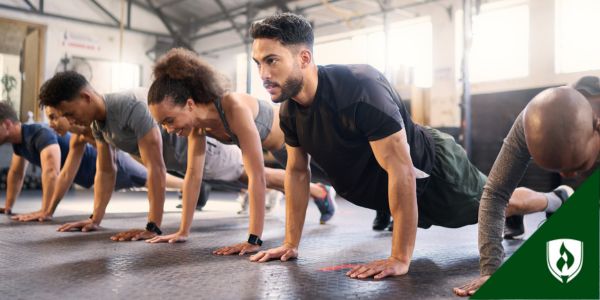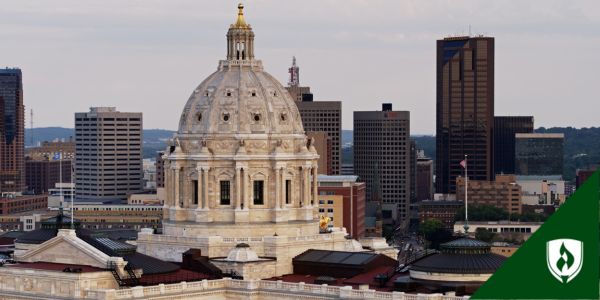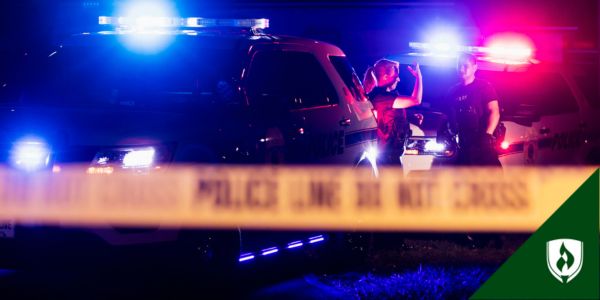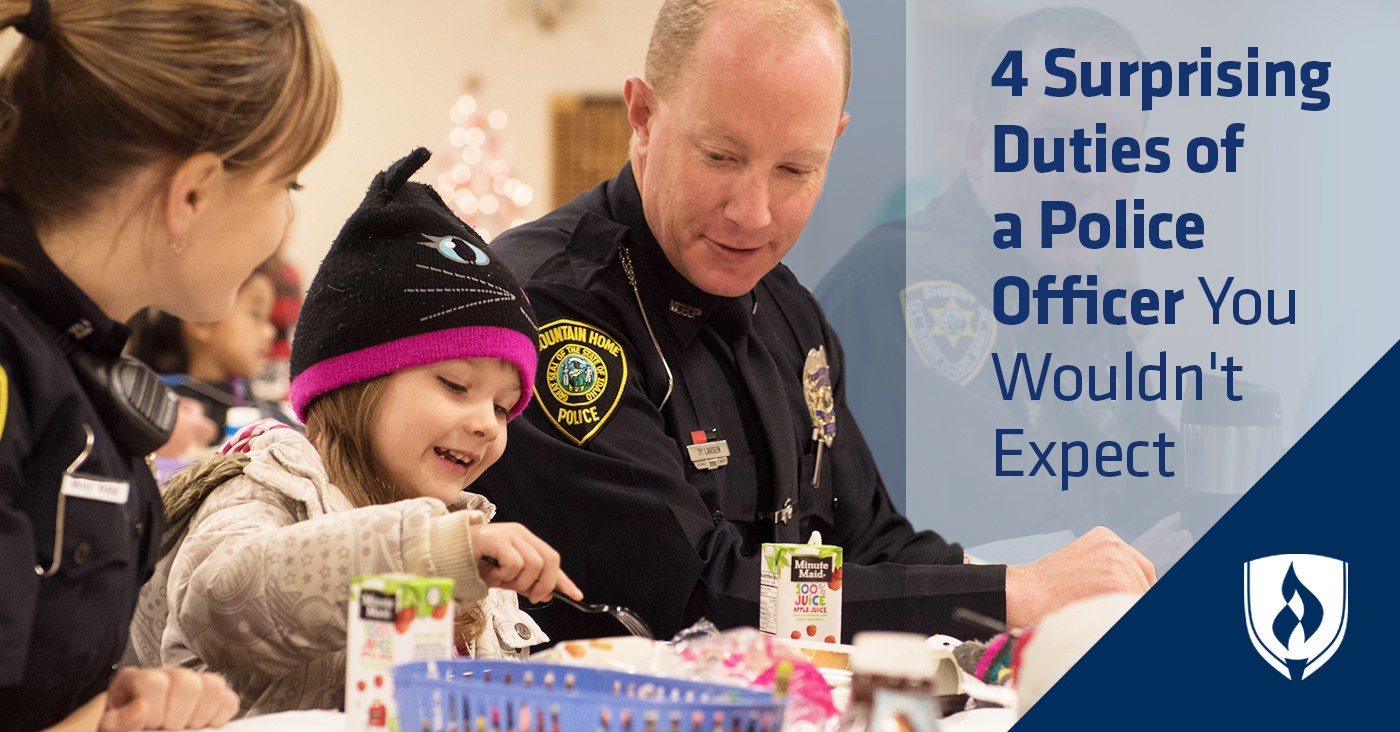
When most people think of police officers, they may think of uniformed men and women busting down doors, chasing after suspects or handing out traffic tickets. While police are responsible for upholding the law and apprehending those who break it, the average day of a police officer consists of much more than that.
Most people are unaware of the many duties police officers fulfill in a day, and lately it seems that police are only recognized for their mistakes and not their good deeds. However, both on- and off-duty police contribute in a number of ways to their community—many of which go unseen by the public.
So what are some common duties of a police officer besides catching criminals or setting speed traps? We spoke with real law enforcement officials to learn about some of the lesser-known duties they perform to help keep you and your community safe. You may be surprised to hear some of the incredible things they do day in and day out.
1. They save lives in a variety of ways
This one might be obvious: of course police save lives—they put murderers and dangerous criminals in jail.
Police will often put themselves in the face of danger in order to save civilian lives. One example of this was the story reported by PoliceOne.com of Officer Michael Napolitano, who was one of the heroic officers present at the Pulse nightclub shooting in Orlando, Florida.
Napolitano courageously entered the nightclub and engaged in a gunfight with the attacker. During the quarrel, a bullet struck Officer Napolitano’s helmet and fragmented. He suffered minor injuries, but because of him and the rest of the police officers and SWAT team, many lives were saved.
But it’s not always the headline-grabbing bouts of heroism that keep citizens alive. Often it’s the stuff that never makes it into the newspapers that has the most impact. Lt. Randy Sutton, National Spokesman for Blue Lives Matter, says he’s witnessed a former partner talk a suicidal man out of pulling the trigger. It might not be national news, but that’s one event that quietly changed the lives of the man and his loved ones.
Police officers can save lives indirectly as well. For example, police officer and author RJ Beam recalls a situation in which poor weather led to him being tasked with transporting a nurse and a cooler containing a transplant-ready human organ. You likely won’t encounter strange circumstances like this every day, but that’s just one example in a huge array of seemingly small duties that can ultimately save lives.
2. They help citizens in need
There are countless positive police stories chronicling the good deeds that show officers going out of their way to help others. Some are more light-hearted, such as when Beam had to chase bats out of peoples’ homes, while others are more emotionally moving.
“I once sat with a woman after her husband died of a heart attack,” Beam shares. “Her son lived three hours away. She could not be alone. It was late at night so she did not want to wake the neighbors. I made her coffee, and she showed me all the family photo albums.”
In his time as an officer, Beam says he has helped citizens in a plethora of other ways. He’s delivered pizza to a house after the delivery driver was in a car crash, relit a pilot light on someone’s furnace when they couldn’t reach a repair service and carried groceries for someone who had fallen on ice and been hurt.
Everyday scenarios like these show just how important and trusted police officers are. They are the ones who are ready and willing to help their community members at any given time.
3. They educate
Community events, such as town halls or fairs, often feature police presenting or speaking. Police educate their communities on many topics such as safety, crime prevention tips, new programs, neighborhood watch groups and other important police activities. These opportunities to interact with law enforcement give the public time to have their questions or concerns answered, as well as build trust and respect between police and the public.
Many communities also offer school-based programs in which officers visit schools, educating students on various topics. One of the most well-known of these programs is the Drug Abuse Resistance Education Program, or D.A.R.E. Similar programs include the Gang Resistance Education and Training Program (G.R.E.A.T) and special activities during Red Ribbon Week.
In addition, programs such as Strategies for Youth help introduce and build connections between law enforcement and students. This early interaction allows teens to understand and appreciate the role of police officers with the hopes of building a lasting, trusting relationship between the two groups.
4. They serve as protection
When it’s late at night and you feel the slightest bit uneasy walking home alone, the police are there to answer your call. Contrary to what some may believe, the police are willing and able to help in non-emergency situations as well. If you are ever feeling unsafe, try calling your local police department’s non-emergency number, explain your situation and an officer will likely be happy to assist you.
For example, Beam says it’s fairly routine for police officers to accompany store managers to their cars after closing up shop late at night, or to escort business owners to the bank as they make late night deposits after a particularly profitable day.
They can also serve as protection for your loved ones. Police can conduct welfare checks, which occur when a concerned loved one calls the police and requests that they check on someone. This usually arises when someone has not been heard from in a few days or weeks, such as an elderly loved one who lives alone. Police can visit his home to see if they are there and are in need of any assistance. You should have reason to believe your relative or friend is in danger before calling the police, but if you do, police may end up saving his or her life.
Policing isn’t always what it seems
Hollywood typically only portrays the action-packed duties of a police officer. In reality, the average day of a law enforcement officer is filled with many small, unexpected calls and responsibilities. As a police officer, you never know how your next shift will unfold.
While some may prefer days of steady routine, the unpredictable nature of police work can be incredibly exciting and rewarding. You are called upon to be a leader and protector in your community, and your role can change the lives of the citizens under your watch.
“The most rewarding part of being a law enforcement officer is being on the front line, making a difference in the lives of others,” Sutton says. “By being prepared to enter into peoples’ lives, you quite literally can change those lives, and when you are looking down at the face of the baby you just delivered on the side of a lonely road, you know how important it was that you chose to be a cop.”
If you feel called to be a protector in your community, a career in law enforcement may be the perfect fit for you. Take the next step in your journey today by learning more about How to Become a Police Officer.
RELATED ARTICLE:
- How Accurate Are Crime Shows on TV? Debunking 7 Common Myths
- 8 Things You Didn't Know About the Rasmussen University Law Enforcement Program
- Officers Reveal 9 Things They Wish They Had Known Before Joining the Police Force
- Patrol Officer vs. Sheriff's Deputy vs. Correctional Officer: Which Law Enforcement Job is Right for You?
- 5 Signs You Should Be Working in Law Enforcement

